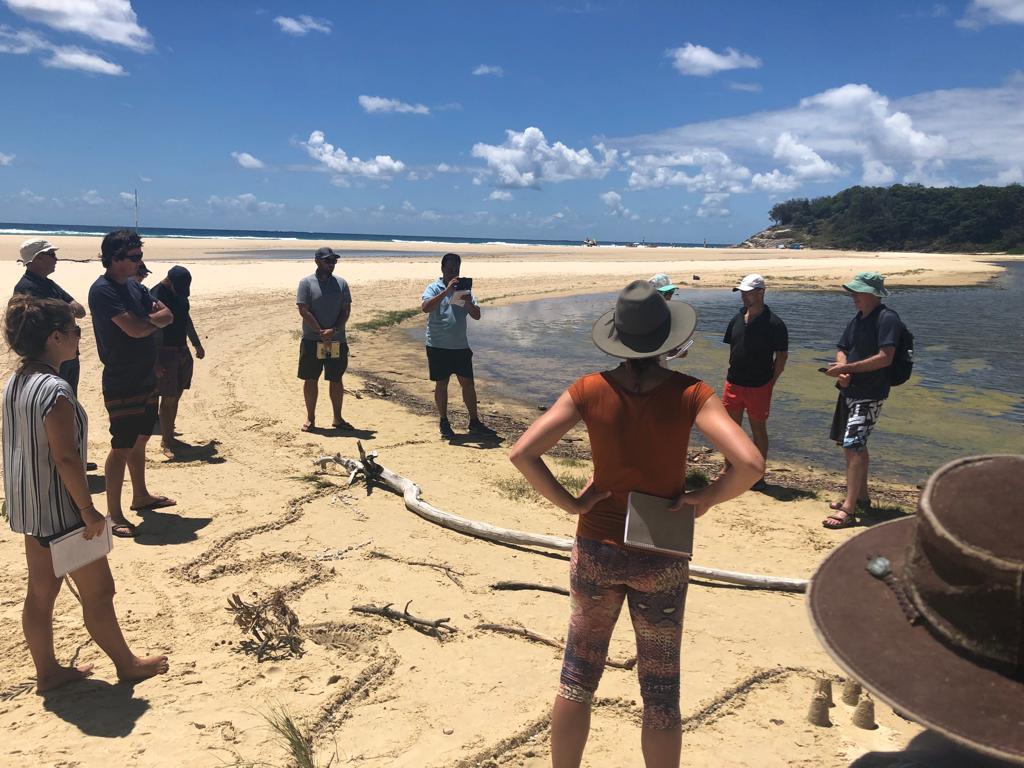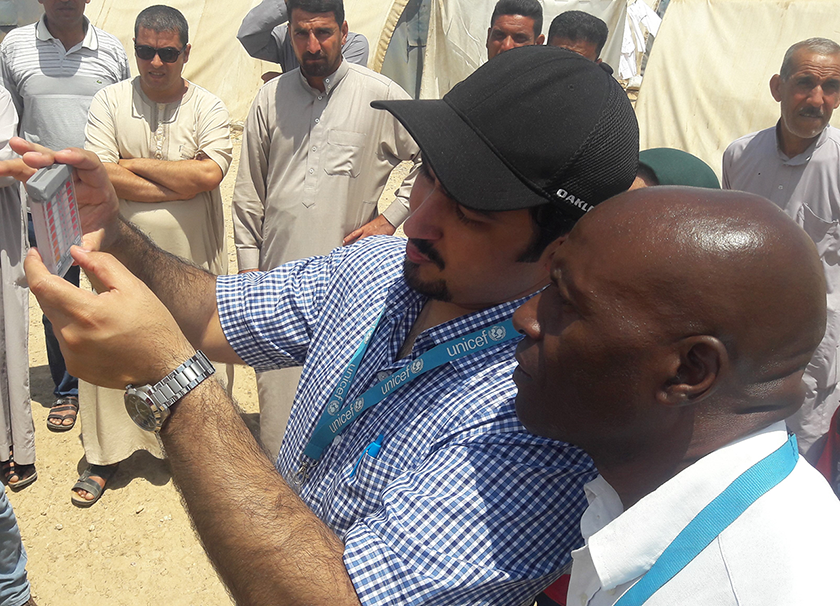
- Research project
- – Western Pacific
For Ammar Orakzai, there’s always something to learn in the water, sanitation and hygiene (WASH) field, it’s what drew him to the whole of water cycle approach taken by the International WaterCentre’s Master of Integrated Water Management.
As UNICEF’s Chief of Water, Sanitation and Hygiene Program in Tajikistan, Ammar leads the overall Climate resilient water and sanitation program with a budget of 16 million USD.

“We focus on policy and strategic engagement to strengthen the enabling environment for WASH actions, providing technical support to the government on Sustainable Development Goal six (SDG 6.1 and 6.2), to ‘Ensure access to water and sanitation for all’, by targeting both rural and urban environments, with a child rights perspective in mind,’ said Ammar.
“We also support infrastructure projects including in social institutions (such as schools and health care facilities), disaster risk reduction, climate resilience, emergency preparedness and response and inclusion.
A key aspect of Ammar’s role is developing and implementing an expanded WASH strategy for UNICEF Tajikistan that incorporates a broader engagement with enabling environment, which includes policy, regulation, legislation, sector planning, partnerships, sector coordination and financing in addition to the grassroots level work.
“By providing technical support to the Ministry of Health and Social Protection in close coordination with the Ministry of Energy and Water Resources, World Bank and United Nations Development Program in Tajikistan, we are helping to direct the development of the sanitation and hygiene component of the Tajikistan’s National Water Strategy.”
Ammar credits the International WaterCentre’s Master of Integrated Water Management as being a crucial springboard that helped to prepare for understanding the bigger picture, and cross-sector linkages, of the water landscape.
“It equipped me to deal with the wicked problems in the water sector across the globe,” Ammar said.
“I discovered the program in 2017 while searching for an inter-disciplinary course to complement my work with UNICEF, coordinating the Cluster for humanitarian WASH response to a conflict situation in Pakistan.”
Having extensive experience in the international WASH sector since 2006 in a development and humanitarian context and in a number of different countries across South and Central Asia, Middle East and East Africa, Ammar came to the realisation that integrated water management requires a holistic, whole of water cycle approach which is interdisciplinary and inclusive.
“We often work in boxed approaches in the sector, but an Integrated Water Management approach is needed if we want to solve the long-standing challenges in the water sector.”
“Although I had experience in countries like Pakistan, Afghanistan, Turkey, Syria, Iraq, Philippines, Greece, Somalia and Tajikistan, some of which had fragile environments, I needed to increase my knowledge of technical, social, economic, environmental and political aspects of water management. The master’s program allowed me to develop my capacity to use whole of water cycle, multidisciplinary approaches to water management.”
Water management the world over is facing a host of serious challenges that will require future water managers have the ability to cross social, environmental and technological boundaries, combining multi-disciplinary knowledge with theory to inform effective practice.
The Master of Integrated Water Management (MIWM) is one of the few programs that takes a truly integrated approach to water management, bringing together social, economic, ecological, and engineering dimensions to effectively address complex sustainable development challenges that have water at their core.

“The program expanded my ability to understand the holistic picture and see the interconnected elements of WASH and sustainable development, and the potential interactive effects they have on one another, which I previously wasn’t so clear on,” Ammar said.
At the heart, the MIWM program incorporates practical projects providing those enrolled with the opportunity to apply the knowledge they have gained.
“The projects were crucial for applying the WASH knowledge we had learnt. They also cultivate critical thinking in real-life situations through field experience and interaction with experts enrolled in and associated with the program.”
Ammar’s final project determined the feasibility of adopting a “Water Sensitive Cities” approach and principles in Karachi, a metropolitan city in Pakistan, assessing the enabling environment, infrastructural capacity and other relevant factors within the city.
“The skills I learnt in the master’s program and assessing the enabling environment of Karachi, were directly applicable to my current role as UNICEF’s Chief of Water, Sanitation and Hygiene Program in Tajikistan”
Despite Ammar’s substantial past experience in the WASH field, he found the program still provided the ability to grow his understanding of water management in specific areas he was interested in.
“I had already worked extensively in the area of WASH in rural environments, so I tailored my major to urban water management which provided me with key insights into new and different approaches to present and future water challenges and potential solutions that I wasn’t familiar with.”
“I also loved that this program was for everyone,” Ammar recalls. “The students enrolled came from diverse backgrounds and for me that added value to the depth of discussions and enriched the overall experience.”
“The program definitely strengthened my understanding of the WASH and IWM field and gave me experience applying the knowledge I gain which I use daily in my work with UNICEF as the Chief of Water, Sanitation and Hygiene Program in Tajikistan, helping to achieve positive outcomes for those vulnerable populations, especially children, facing water stress.
